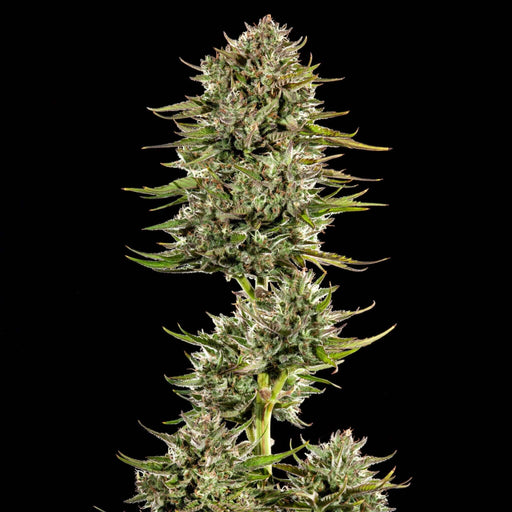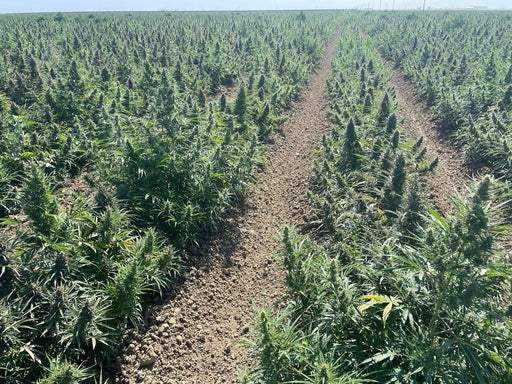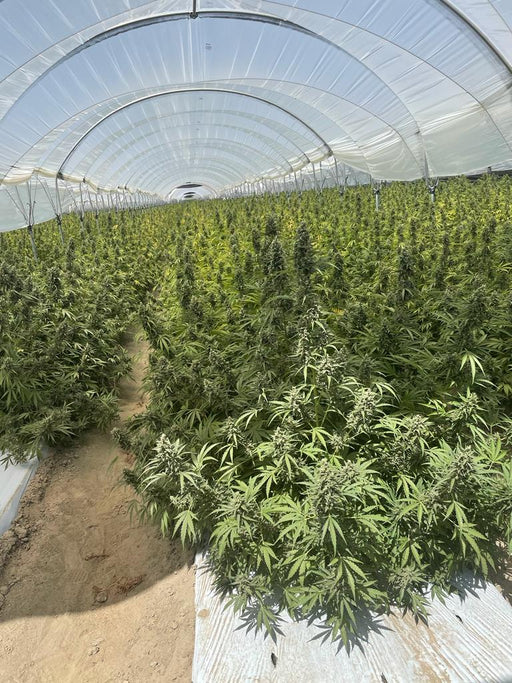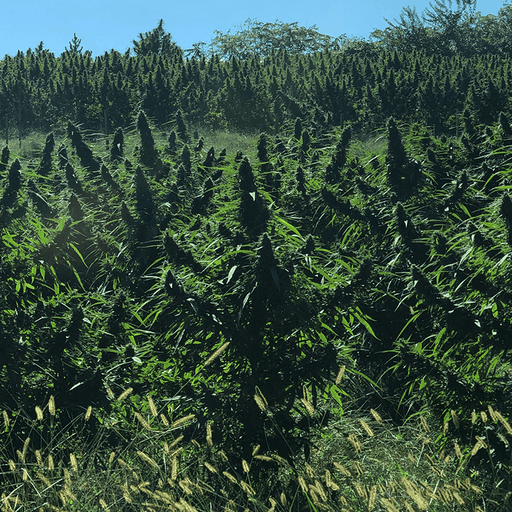
History of CBD Seeds
Long before cannabis was used recreationally, hemp was one of the most important cash crops in the world. The UK and United States even mandated farmers to grow hemp back in the 1800s. However, once recreational use gained momentum, all forms of cannabis were prohibited in nearly every country.
Today, hemp is for far more than its industrial purposes. High CBD potency strains have become popular for recreation, medicinal, and extraction purposes. In this post, we will cover the history of CBD seeds and the future of the cannabis industry.
Scientists Saved CBD
In the pre-prohibition era, cannabis use was limited strictly to the black market; high THC strains dominated the industry. CBD was only known by researchers and a handful of doctors advocating for medicinal use. As a result, we were incredibly close to unknowingly breeding CBD out of the gene pool.
Thankfully, a group of UK scientists led by Geoff Guy, the founder of GW Pharmaceuticals, a grant from the British government, and a Dutch seed company helped develop the first CBD-rich cannabis strains.
Prop 215 – The Compassionate Use Act
Around the same time, in the late 1990s, there was a medical cannabis campaign in California. With the passage of Prop 215, medical marijuana was permitted with the consent of a doctor. The movement sparked an interest in CBD-rich strains, which fueled the foundation of the current cannabinoid hemp market.
The First High Potency CBD Seeds in the US
While high-THC strains and extracts still dominated the industry, there was a rising interest in CBD strains. Harborside Health in Oakland, California, is credited with developing some of the first high potency CBD seeds in the US. The pioneers even helped establish modern cannabinoid testing through Steep Hill Labs to verify the potency of their newly developed strains.
By 2010, Project CBD was established to promote CBD advocacy and reach out to farmers to preserve their high CBD genetics.
The 2018 Farm Bill
Once the Farm Bill passed in 2018, demand for high CBD seeds skyrocketed. Manufacturers needed low THC strains to comply with new federal laws to capitalize on the increased interest in CBD products.
Chemical Diversity in the Cannabis Industry
The modern cannabis consumer is less focused on THC dominant strains and products. Chemical diversity has become more important as people learn about the abundance of beneficial compounds derived from cannabis.
Check out our massive selection of feminized CBD seeds at Trilogene Seeds.
Source:
https://www.leafly.com/news/cannabis-101/cbd-marijuana-strains-history
F.A.Q
What is the history of cannabis seeds?
Is there really such a thing as a CBD seed?
When was CBD discovered in hemp seeds?
Where does CBD come from?
Featured collection
-

Auto Glu CBD Seeds
Original price $20.00 - Original price $175.00Original price$20.00 - $175.00$20.00 - $175.00Total Price: $20.00Parent Strains: Auto Alpha x Purple Thai Cannabinoid Profile: CBD Dominant Potential THC:CBD Ratio: 30:1 *Pre-Harvest CBD: 9.35%, THC: 0.24% *Post-...
View full details -

Auto Face Gas Feminized Cannabis Seeds
Original price $15.00 - Original price $350.00Original price $15.00 - Original price $350.00Original price $50.00$15.00 - $350.00$15.00 - $350.00Total Price: $15.00Parent Strains: Gorilla Glue x OG Cannabinoid Profile: THC Indica-Dominant Hybrid Potential CBD: THC Ratio: 25:1 *Post-Harvest CBD: 0%, CBG...
View full details -

Auto Magik CBD Seeds
Original price $30.00 - Original price $175.00Original price $30.00 - Original price $175.00Original price $30.00$20.00 - $175.00$20.00 - $175.00Total Price: $20.00Parent Strains: Auto Magik x Auto Magik Cannabinoid Profile: CBD Dominant Auto Flower Potential CBD:THC Ratio: 20-25:1 CBD Content: 6%-10% Aroma: S...
View full details -

Auto EZ Bake Feminized Cannabis Seeds
Original price $15.00 - Original price $350.00Original price $15.00 - Original price $350.00Original price $50.00$15.00 - $350.00$15.00 - $350.00Total Price: $15.00Parent Strains:¬†Sour Auto X Cookie Dog Cannabinoid Profile:¬†THC Indica-Dominant Hybrid Potential CBD: *Post-Harvest¬†CBD:¬†0%,¬†CBD:¬†1%,¬†THC:¬...
View full details -

Auto Alpha CBD Seeds
Original price $30.00 - Original price $175.00Original price $30.00 - Original price $175.00Original price $30.00$20.00 - $175.00$20.00 - $175.00Total Price: $20.00Parent Strains: Auto Alpha x Auto Alpha Cannabinoid Profile: CBD Dominant Auto Flower Potential CBD:THC Ratio: 20-25:1 CBD Content: 6%-10% Aroma: C...
View full details










